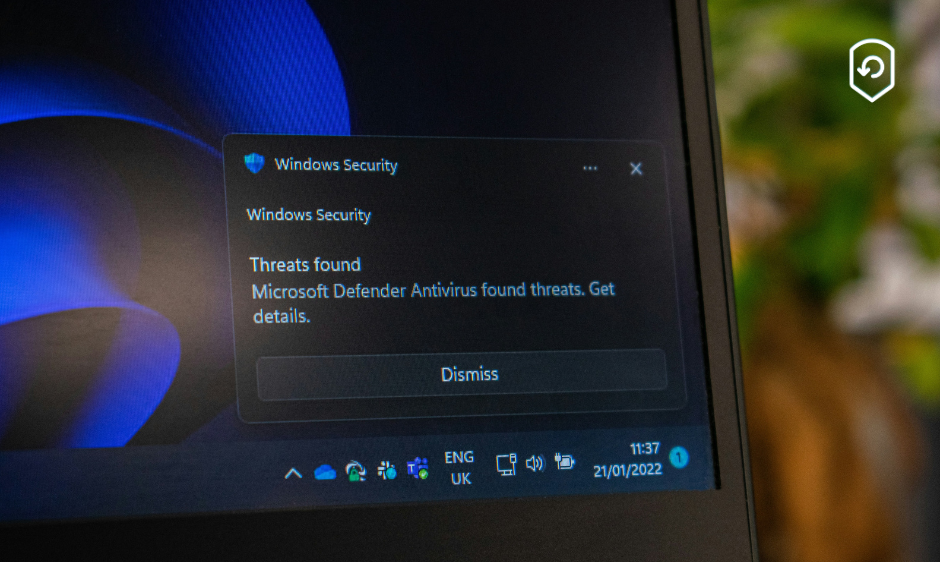Until we discover otherwise, and doing so can be very painful, most of us believe we are safe using our usual antivirus software. However, the truth often differs significantly from our reasonable faith in conventional AV. Don’t get us wrong – antivirus programs have come a long way in protecting our digital lives. But hackers are always one step ahead in the perpetual cat-and-mouse game. So, how do they manage to bypass those seemingly impenetrable defences? Here, we uncover some of their secret tactics, exposing their crafty tricks.
Masters of Disguise
Hackers aren’t simply secretive – they are also masters of disguise. They are expert in cloaking their malicious code in innocent-looking software packages that slip unchallenged past your antivirus radar. They might use techniques such as code obfuscation or polymorphic malware, which means they can change the appearance of their code. By constantly morphing their malware, they can evade detection long enough to wreak havoc on systems.
For those who want to understand a little more, code obfuscation deliberately makes source or machine code difficult to understand. This is often achieved by applying various transformations such as renaming variables and functions, adding meaningless code, or using complex control structures without altering the code’s functionality.
Polymorphic malware refers to malicious software that can change its appearance while retaining its core functionality. It does this by automatically modifying its code or encryption keys each time it infects a new system, making it challenging for antivirus programs to detect and analyse.
Zero-day Vulnerabilities
A clever tactic beloved by hackers is exploiting zero-day vulnerabilities. Zero-day vulnerabilities refer to software flaws or security weaknesses discovered by hackers before the developers or vendors of the software become aware of them. The term “zero-day” comes from developers having had zero days to prepare an adequate response.
These vulnerabilities are particularly dangerous because they open systems to attack without patches or fixes. Thus, hackers can exploit these vulnerabilities to launch attacks, such as spreading malware, stealing sensitive information, or gaining unauthorised access to systems without fear of being thwarted by security measures.
Cybercriminals and state-sponsored hackers highly prize zero-day vulnerabilities because they provide a unique opportunity to carry out targeted attacks with a high chance of success.
Social Engineering
Another arrow in the Hackers’ quiver is the social engineering game. Instead of trying to outsmart the antivirus directly, they go for the weakest link in the chain – you. And in reality, it’s not one arrow – it’s a bunch of them, for instance:
- Phishing: Sending deceptive emails, messages, or even phone calls that appear to be from a legitimate source, such as a bank, government agency, or trusted organisation. The aim is to trick the recipient into providing sensitive information like passwords, credit card numbers, or login credentials.
- Pretexting: The hacker creates a fabricated scenario or pretext to gain the target’s trust. This could involve posing as a colleague, IT support, or authority figure to extract information or access to systems.
- Baiting: This involves enticing targets with something valuable, such as a free download or prize, in exchange for personal information or login credentials. Clicking on the malicious link infects the victim’s system with malware.
- Quid pro quo: Here, a hacker might pose as a tech support representative offering to fix a non-existent computer problem in exchange for remote access to the victim’s device.
Complacency and Human Error
Complacency and human error are too often the reason for getting hacked. Ultimately, antivirus software is only as effective as the person operating it. Failing to keep your antivirus and other software updated, failing to practice safe browsing habits, and not exercising due caution when downloading files invite hackers in through your open front door.
Valuable Takeaways
We hope you found that interesting, even entertaining. Sometimes hackers are seen as romantic figures, Mavericks, the modern equivalent of a highway robber. But don’t be fooled – they are highly crafty and out for what they can get, no matter what damage they do to people and organisations while pursuing their ill-gotten gains.
But you are not alone in the morass. Help is at hand. If you want more information on any of this or would like advice on any issue related to cybersecurity, please reach out to our team at Roundhouse Cyber. And don’t forget to share your insights with your friends and colleagues – they will thank you. Remember, Roundhouse Cyber is dedicated to creating a safer digital world for individuals and businesses. We would love to talk to you.



